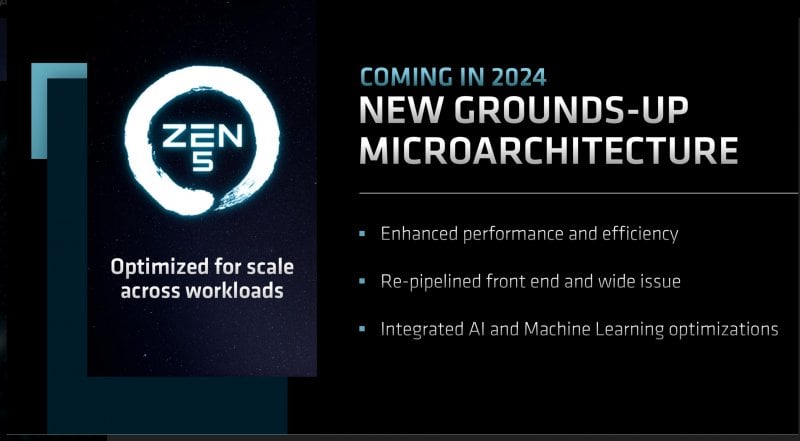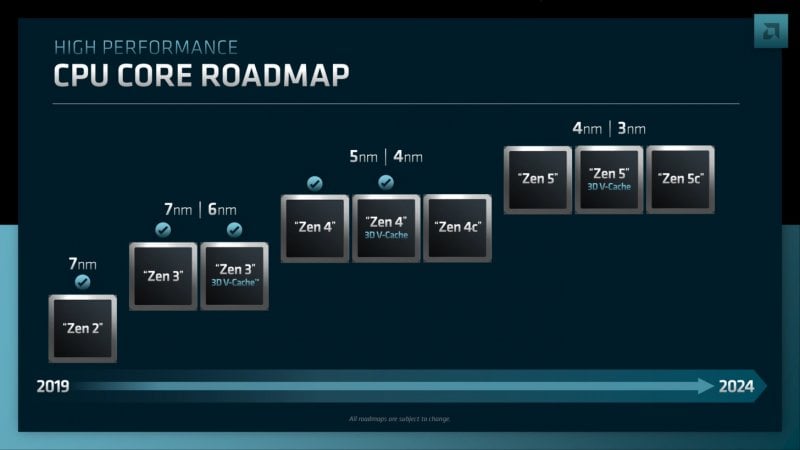According to the latest rumors, the AMD Zen 5 architecture brings 40% faster cores compared to the Zen 4 generation.
The new CPUs based on AMD's Zen 5 architecture they should arrive on the market in the second half of 2024 and the rumors about the new chips are becoming more insistent than ever. According to a recent rumor, the cores of the upcoming Zen 5 processors will have 40% higher performance than those of the current generation of Zen 4 hardware.
In short, the next-gen “Granite Ridge”, “Strix Point and “EPYC” CPUs could reserve more than one surprise from a performance point of view.
40% higher performance
The rumors come from the now famous @Kepler_L2, and were discovered within the forum of the Anandtech website. Kepler said that, doing a “core-on-core” comparison, AMD's Zen 5 architecture would offer performance over 40% higher to those of Zen 4-based cores.
The well-known leaker stated that these performances were obtained from SPEC (Standard Performance Evaluation Corporation) benchmarks, without however specifying further details on the nature of the data.
If this were confirmed, we would be faced with a huge leap forward from AMD, moreover obtained in the space of a single generation. On the other hand, AMD is not new to situations of this type: with the first generation Zen the red house managed to obtain a leap of 52% compared to the previous Excavator.
What do we know?
At the moment we don't know much about the Zen 5 architecture. According to AMD's statements, the new processors will bring superior performance and optimized efficiency, as well as integrated features related to artificial intelligence.
AMD is expected to launch the new architecture for all desktop PC, laptop and server segments: in particular Zen 5 will likely make its debut on the Granite Ridge, Strix Point and EPYC lines.
Interesting news recently emerged on two AMD Granite Ridge processors with 6 and 8 cores being tested, a factor that would seem to confirm the arrival of the chips in the second part of the current year.
#AMD #Zen #core #architecture #faster #Zen

